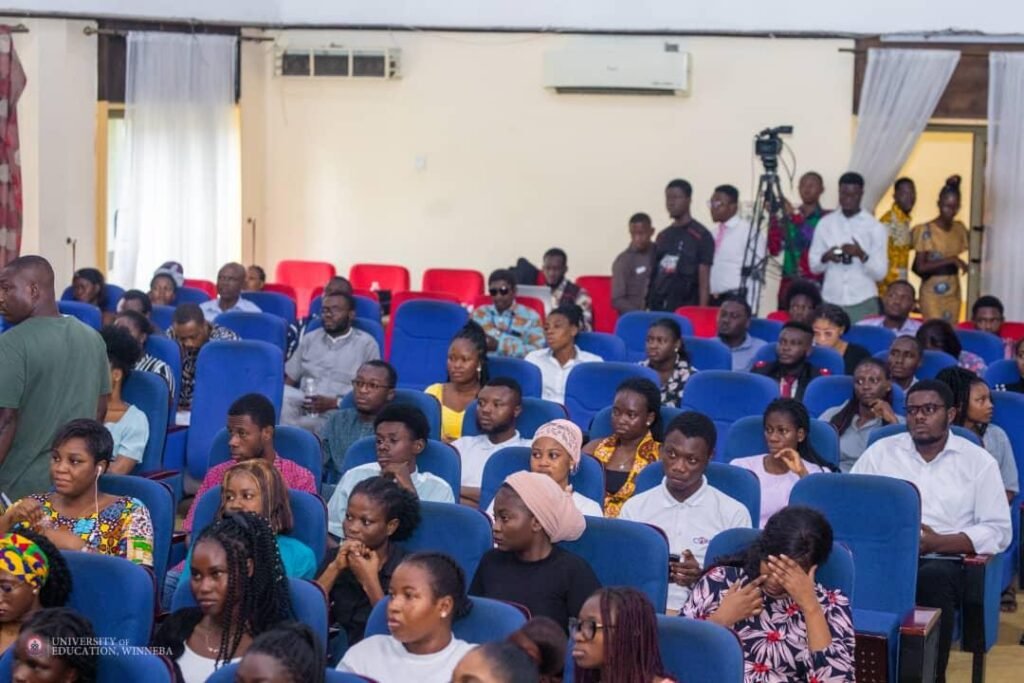The President of the Ghana Journalists Association (GJA), Albert Kwabena Dwumfour, has stressed the commitment of the association to promote responsible journalism in the era of technological transformation.
He explained that, while the association would push for the protection of media freedom, there was the need for media practitioners to guard against publication of defamatory or false information.

“It is on the basis of this conviction that we have always stressed the need for journalists and other media practitioners to exhibit responsibility in the exercise of freedom of expression,” he said.
Mr Dwumfour said this during a seminar organised by the University of Education, Winneba Department of Journalism and Media Studies, in collaboration with the School of Communication and Media Studies and the Ghana Journalists Association (GJA).
On the theme: “75 years of excellence in journalism: The impact of journalism education on the future of journalism practice in Ghana”, the event brought together media scholars, journalists and student journalists.
The Head of Journalism and Media Studies Department, Dr Gifty Appiah-Adjei, in her remarks, underscored the importance of bridging the gap between industry and academia in order to ensure holistic training of student journalists.
She indicated that what pertained in the lecture halls might vary from what happens on the field, and underscored the need for collaboration between academia and industry, stating that, “It is on this note that we are looking at how well journalism education impact practice”.
The Dean of the School of Communication and Media Studies, Prof. Albert Agbesi Wornyoh, who was the chairman for the programme, reiterated the importance of journalism for national transformation and called on journalists and media practitioners to be professional in the discharge of their duty.
He noted that, the seminar would shape the thinking of student journalists regarding the practice of journalism profession in the country.
In a presentation, Prof. Umaru Pate, a professor of Media and Society, Federal University of Kashere, Gombe State, Nigeria, called for collaboration between researchers and media practitioners on how to ensure that the media meets the emerging and innovative technologies in the world.
He, therefore, reiterated the need for journalists and media practitioners to adopt technology, adding that the emergence of new technologies was pushing the media to go towards a certain direction.
Prof. Pate further called on media organisations to adopt innovative product development in meeting the challenges of contemporary global technological trends, stressing, “Any media outlet that refuses to adopt emerging technologies will be pushed out of business”.
Prof. Admire Mare, Head of Communication and Media Department, University of Johannesburg, stressed the need for stakeholders to critically examine and redefine journalism education to prepare future professionals for the challenges and opportunities ahead.
Journalism education, he said, must strengthen ethical foundation by reinforcing the tenets of “fairness, accuracy and accountability” looking at the issues of contemporary practice of misinformation, mal-information and disinformation.
He added that journalism education should focus on developing analytical skills of students to enable them to distinguish information from falsehood due to technological disruptions in journalism practice.
FROM DAVID O. YARBOI-TETTEH, WINNEBA